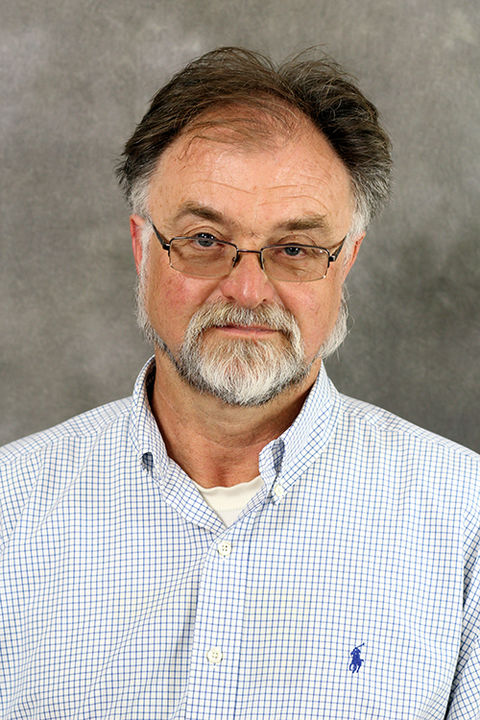Roger Craik, Professor Emeritus of English at Kent State University, Ohio, has written five collections of poetry: I Simply Stared (2002), Rhinoceros in Clumber Park (2003), The Darkening Green (2004), Down Stranger Roads (2014), and In Other Days (2022) along with two chapbooks, Those Years (2007), (translated into Bulgarian in 2009), and Of England Still (2009). His poetry has appeared in several national poetry journals, such as The Formalist, Fulcrum, The Literary Review, The Atlanta Review, The London Grip and The London Magazine. English by birth and educated at the universities of Reading and Southampton, he has worked as a journalist, TV critic and chess columnist. Before coming to the USA in 1991, he worked in Turkish universities and was awarded a Beineke Fellowship to Yale in 1990. He is widely traveled, having visited North Yemen, Egypt, South Africa, Tibet, Nepal, Japan, Bulgaria (where he taught during spring 2007 on a Fulbright Scholarship), the United Arab Emirates, Austria, Croatia and Romania, (where from 2013-14 he was a Fulbright Scholar at the University of Oradea). He is glad every day that he is living in the USA. He watches the birds throughout the year, with joy.
Kristina Marie Darling: Your latest poetry collection, In Other Days, was recently launched by BlazeVOX Books. What are three things you’d like readers to know before they delve into the work itself?
Roger Craik: The poems in In Other Days were, in the main, written since the last book (Down Stranger Roads), but some were revisions, often pretty drastic revisions, of poor efforts written a good while earlier, where the governing idea struck me as reasonable, and maybe a line or two, but the rest anything but. Second, I tried not to drive my friend and publisher, Geoffrey Gatza at BlazeVOX out of his wits by revising, but of course one revises and revises, and not always for the better. One has to call a halt somewhere. I found it difficult to put the poems in an order. The beginning and end are chronological, starting with early childhood and teenage years (not much of the latter), and the last fifth, say, are shadowed by my mother’s advancing illness and death. Then there were all the others in between! I remember reading Philip Larkin saying “if the reader doesn’t like the current poem, perhaps he will dislike the next one less.” That is exaggeratedly wry, but variation is a good principle, I think, and I tried to work along those lines. On the other hand, I hardly ever tried to arrange the poems so that certain ones would “speak” to others. I thought that was beyond my control, and abilities too, probably. Lastly, I hope the collection gives the reader pleasure.
KMD: How would you describe the role of place in your new book and in your work more generally?
RC: This sounds a straightforward question but I find it difficult. In the new book, there is quite a range of places, in a variety of countries, such as America, Russia, Romania, Bulgaria, and some others I don’t quite remember. I don’t think I ever write a poem purely about a place, as such: it usually is a setting for a particular state of mind, and I try to write in such a way that the place somehow informs the state of mind as the poem goes along. Insofar as I remember the actual writing of particular poems, some, such as the one “Arad, Romania,” started in the place itself, and then that eased into a mood brought about by that place. Others are from memory, distant or recent as the case might be.
KMD: Relatedly, I admire the way your book looks beyond an insular American literary tradition. Can you speak about the influence of international poetry on your writing?
RC: Well, I am English by birth, and lived in Britain for the first thirty years of my life. Most of the poems I studied at college, and read for pleasure, came out of the Anglo-Saxon tradition, which is rich but can be limiting. When I arrived in America, in 1991, I started reading a great deal of European poetry, particularly Eastern European poetry, albeit in translation. I found this freeing, both in terms of reading, and then as an influence on my own attempts. This, combined with actually living in America (and by the way, I am very happy here, and never nostalgic for Britain) got me out of what I think of as particularly “English” ways of thinking, often associated with undue self-consciousness and even repressedness (is this a word?) at how the poem would be received, if it were read.
KMD: In addition to your achievements as a poet, you are also an accomplished educator. What has teaching opened up within your creative process?
RC: That’s very kind of you to say, but the frank answer is “very little indeed,” and might not be what you expect to hear. When I taught in universities, I would always read aloud to students, rather feeling that the spoken word tends to get short shrift in university teaching. I would have ideas of my own during such reading, and the rhythms and images would sink into me. I have written one or two poems about teaching, and students. I liked my students very much.
KMD: Will you share a writing prompt with our readers?
By all means. “Field.”
KMD: What are you currently working on? What else can readers look forward to?
RC: I am writing, and accumulating, poems for another full-length book which at the moment I think I shall call “Alightings,” as this word suggests two opposite meanings, a landing, and a taking off (as well as metaphorical suggestions). A photograph of pigeons, doing just that, might be the cover. What do you think, Kristina? But it’s in the works only.
Roger-Craik-Poems-Google-Docs
